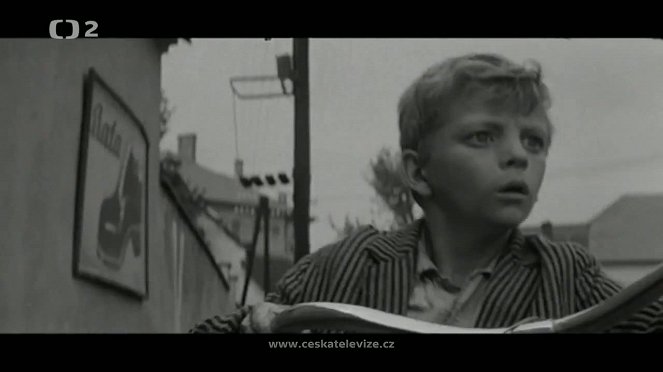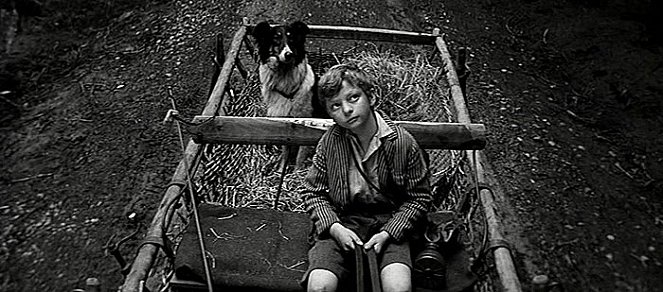Ohjaus:
Karel KachyňaKuvaus:
Jaromír ŠofrSävellys:
Jan NovákNäyttelijät:
Zdeněk Lstibůrek, Naděžda Gajerová, Vlado Müller, Gustáv Valach, Yuriy Nazarov, Iva Janžurová, Jindra Rathová, Jaroslava Vysloužilová (lisää)Juonikuvaukset(1)
It is the spring 1945 and the frontline is getting closer to the small Moravian village of Nesovice. Twelve-year old Oldřich Vařeka, nicknamed Shorty [Pinďa] for his tiny stature, observes the events around him, recalls his memories and also finds comfort in his fantasy. Although he is an only son, his father treats him harshly and brutally punishes his every trifle. Maybe he wreaks his vengeance on him for his own unsuccessful effort to compete with the richest farmers in the village. The boys from the wealthy farms poke fun at Shorty and he takes his revenge on them in petty malice. From a hide-out, the boy then watches the fleeing German soldiers. The Soviet troops are getting closer and the farmers including Vařeka send their sons with the cattle and horses into the forests, fearful of requisitions. They themselves, nevertheless, make no scruples to break into an abandoned German farm and steal everything. In the forest, Shorty has the family's only horse, and the wagon with it, stolen by three German fugitives. The boy fears his father's punishment and tries to steal one of the horses from a camp of Soviet soldiers, but is almost caught. In the morning, he meets a friendly Soviet officer and shows him a motorcycle left by Germans which he had found. They together enjoy a wild ride on the motorcycle, but the officer is killed by a German bullet. In astonishment, Oldřich watches the hypocritical behaviour of the villagers who force their fellow-citizen Cyril Vitlich to commit suicide on the basis of purported collaboration with the Germans. (jakelijan virallinen teksti)
(lisää)Videot (1)
Arvostelut (1)
This film is an example of Karel Kachyňa's directorial mastery. The film clearly shows that Kachyňa originally studied camera work and is strongest in working with imagery. The film is a caustic reflection of life in a Moravian village at the end of the war. Kachyňa looks at the rural community of the German Reich's demise and the arrival of new orders through the eyes of a 12-year-old boy who escapes from the joyless reality (he is the target of mockery, isolated from his peers, and has an insensitive despot for a father who considers corporal punishment the most effective educational tool) and runs into a world of dreams and fantasies. The film requires greater perception, as it constantly alternates between different time layers and dreams. The viewer gradually puts together a whole image and constructs a story from the individual fragments. Kachyňa looks at the liberation of the republic with a non-ideological perspective and finds the glorification of liberation and the Soviet army that was common until then foreign to him. On the contrary, the final scapegoating of the local outsider, whom the community has chosen as a sacrificial lamb for their frustration from the occupation's powerlessness and at the same time as an ideal means to divert attention from their own moral decline, is one of the most impressive examples of repulsive Czech mentality and human pettiness. In my opinion, in this film Kachyňa sometimes gets carried away with poetic imagery and other times edits shots in a way that compromises the comprehensibility of the plot, but even with these reservations, it is an exceptionally powerful film, one of the best of its decade. Overall impression: 90%.
()


